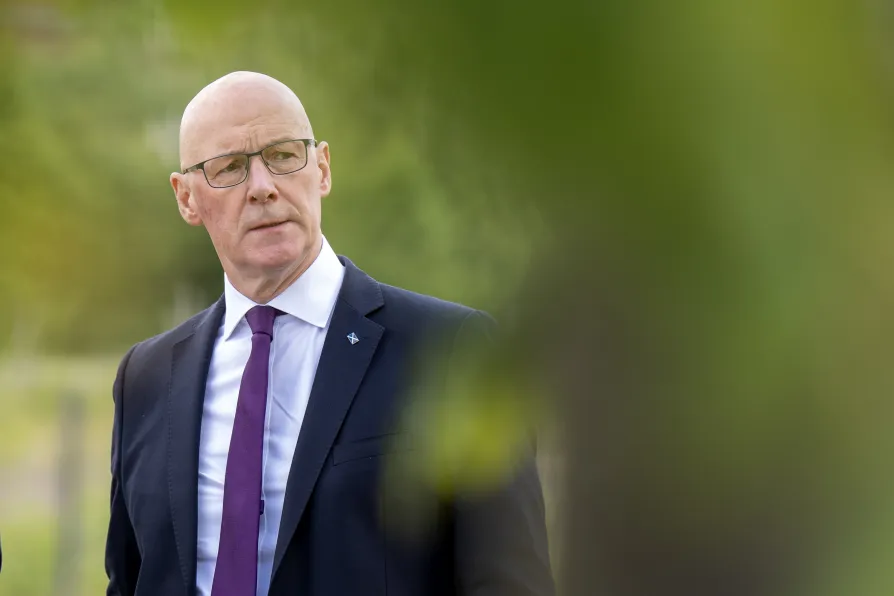
 First Minister John Swinney during a visit to Clyde Gateway's Magenta Business Park, Glasgow, to turn on Scotland's first renewable district heating system and to announce funding for regeneration projects, July 16, 2025
First Minister John Swinney during a visit to Clyde Gateway's Magenta Business Park, Glasgow, to turn on Scotland's first renewable district heating system and to announce funding for regeneration projects, July 16, 2025
THE Scottish government has been urged to stop the increasing levels of plastic pollution in an an open letter signed by 18 environmental and civil groups.
First Minister John Swinney faced calls to set clear targets to reduce plastic production and waste, including the exporting of waste.
The SNP leader was also urged to ban the burning of plastic in incinerators, fund research into the impact of plastics on people’s health and develop a reuse programme to make reusing as easy as buying new in Scotland.
The letter, signed by groups including Friends of the Earth Scotland and Stop Climate Chaos Scotland, comes as the final stages of international talks on the Global Plastics Treaty begin in Geneva.
It warns that much of the plastic use in Scotland is “unnecessary,” designed for single use and often not recyclable.
“People see the impact of plastic litter and thrown away products in their daily lives and support for change is high,” it says.
“Measures in place today, such as recycling and selective product bans, have proven insufficient in addressing the plastic crisis.
“Solutions must address the root cause of the crisis — how plastics are produced and sold.
“Only governments can hold producers and retailers to account for the harm created by their plastic products.
“Many of the actions required to achieve this can and must be taken at a devolved level.”
Friends of the Earth Scotland campaigner Kim Pratt accused ministers of “failing” to take the action needed to prevent the harms caused by the plastics.
She said: “Promises at an international level will only be meaningful if they are backed up with action at a local level.
“Industry-backed solutions, such as recycling, do not address the underlying cause of the plastics crisis – that there is too much plastic to begin with and more is being made every day.
“There are practical steps the Scottish government should be taking today to halt the plastics crisis.”
A spokesperson for the Scottish government said that it works “with our partners to reduce as many sources of plastic pollution as possible and also to support the removal of rubbish from our seas and coastline.”










